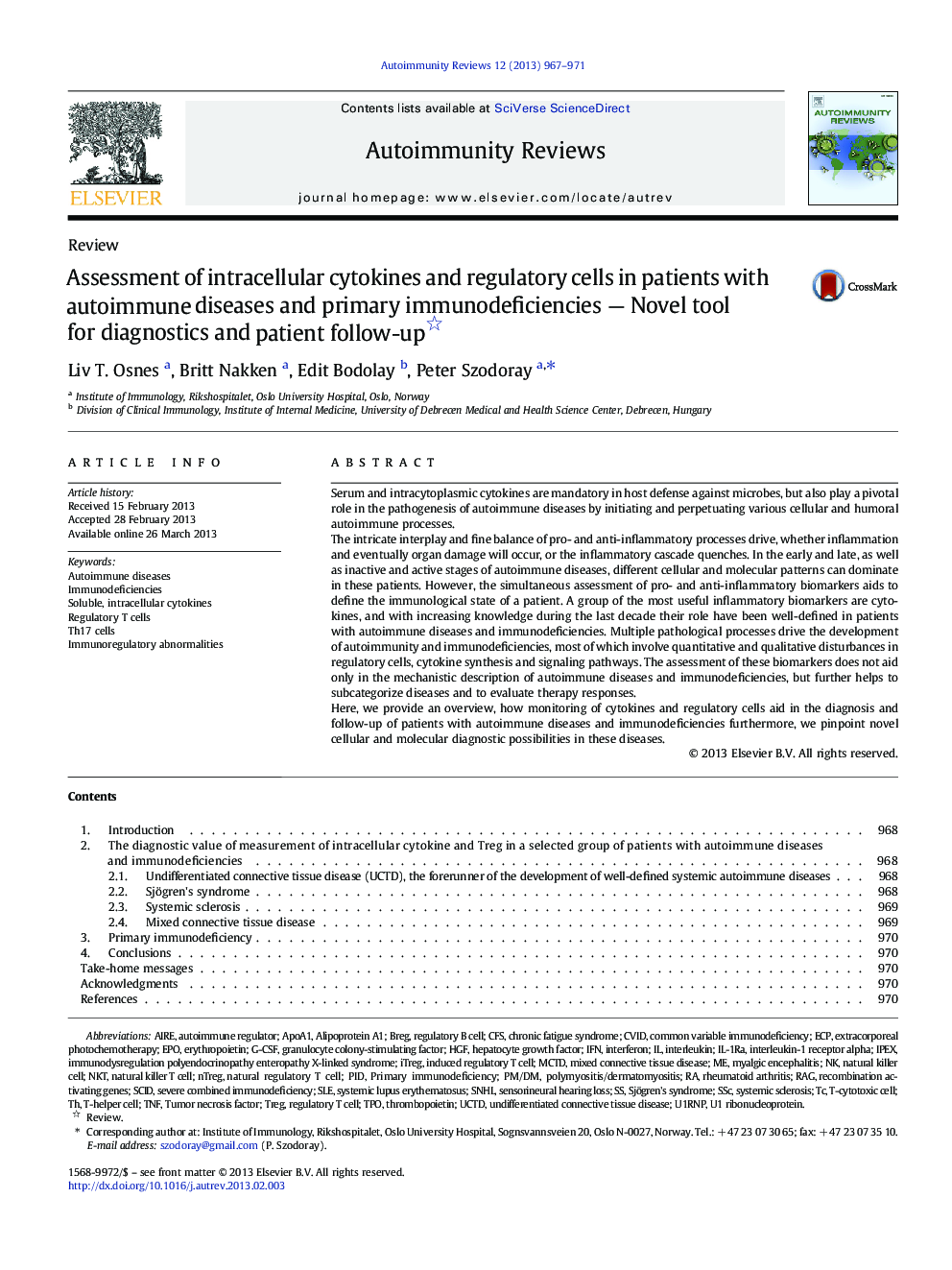| Article ID | Journal | Published Year | Pages | File Type |
|---|---|---|---|---|
| 3341704 | Autoimmunity Reviews | 2013 | 5 Pages |
Serum and intracytoplasmic cytokines are mandatory in host defense against microbes, but also play a pivotal role in the pathogenesis of autoimmune diseases by initiating and perpetuating various cellular and humoral autoimmune processes.The intricate interplay and fine balance of pro- and anti-inflammatory processes drive, whether inflammation and eventually organ damage will occur, or the inflammatory cascade quenches. In the early and late, as well as inactive and active stages of autoimmune diseases, different cellular and molecular patterns can dominate in these patients. However, the simultaneous assessment of pro- and anti-inflammatory biomarkers aids to define the immunological state of a patient. A group of the most useful inflammatory biomarkers are cytokines, and with increasing knowledge during the last decade their role have been well-defined in patients with autoimmune diseases and immunodeficiencies. Multiple pathological processes drive the development of autoimmunity and immunodeficiencies, most of which involve quantitative and qualitative disturbances in regulatory cells, cytokine synthesis and signaling pathways. The assessment of these biomarkers does not aid only in the mechanistic description of autoimmune diseases and immunodeficiencies, but further helps to subcategorize diseases and to evaluate therapy responses.Here, we provide an overview, how monitoring of cytokines and regulatory cells aid in the diagnosis and follow-up of patients with autoimmune diseases and immunodeficiencies furthermore, we pinpoint novel cellular and molecular diagnostic possibilities in these diseases.
